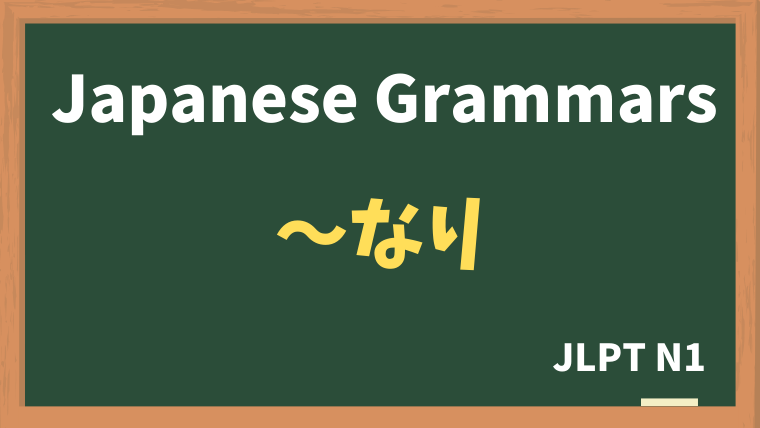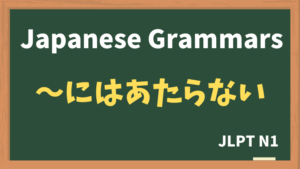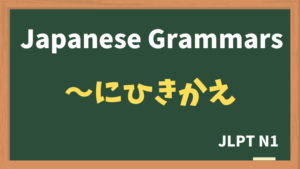
Explanation:〜なり
fa-check-circleMeaning
"〜するとすぐに / 〜すると同時に"
Used to indicate that one action happens immediately after another. It is similar to saying "as soon as" or "the moment" in English. This grammar is often used to describe situations where something happens almost instantly after a preceding action, without any delay. The verb that comes before "なり" is in its dictionary form.
fa-check-circleForm
V(dictionary form)+ なり
fa-check-circlePoints
- Immediate Sequence: "〜なり" emphasizes that the second action happens immediately after the first, often with a sense of urgency or rapidity.
- Same Subject: The subject of both actions is typically the same, meaning that the person or thing performing the first action also performs the second action.
- Formal or Written Language: This expression is more common in formal speech or writing and may sound somewhat literary or old-fashioned.
fa-check-circleJLPT Level
N1
Sample sentenes
息子は家に帰って来るなり、荷物を置いてすぐに家を出ていった。
As soon as my son came home, he dropped his bags and immediately left the house.
父は家に帰って来るなり、倒れて寝てしまった。
Upon returning home, my father collapsed and fell asleep.
彼はJLPT N1の合格通知を見るなり、飛び上がって喜んだ。
Upon seeing his JLPT N1 pass notification, he jumped up with joy.
彼は授業が始まるなり、寝てしまった。
He fell asleep as soon as the class started.
彼女は教室に戻ってくるなり、急に泣き出した。
As soon as she returned to the classroom, she suddenly burst into tears.
Vocabulary
| Japanese |
English | |
| 通知 | つうち | notification |






